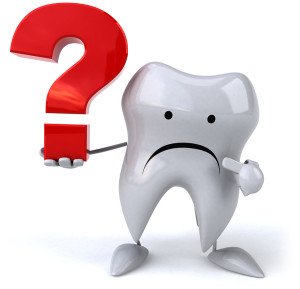What You Should Know About Dental Implants
 Dental implants have long been recognized as the best option for replacing broken and missing teeth or supporting dental prosthetics such as bridges, crowns, and dentures. So if you have been thinking about getting dental implants, it is important that you have a good understanding of them and including the benefits and costs that are involved. Just be aware that your dental insurance may not cover the cost of this elective procedure.
Dental implants have long been recognized as the best option for replacing broken and missing teeth or supporting dental prosthetics such as bridges, crowns, and dentures. So if you have been thinking about getting dental implants, it is important that you have a good understanding of them and including the benefits and costs that are involved. Just be aware that your dental insurance may not cover the cost of this elective procedure.
Dependability And Maintenance
First and foremost, dental implants are just as dependable and effective as your natural teeth. However, some experts also contend that they are considerably more durable based on their longevity. Additionally, they are very beneficial to denture wearers because implants can be used to secure and support full or partial dentures. However, unlike dentures, dental implants are permanent and cannot be removed in order to clean them.
Long-Term Benefits Of Dental Implants
Unlike dental implants, bridges, crowns, and dentures cannot help in the retention of bone mass that is typically lost when missing teeth. Basically, there is no foundation within the jawbone. You can support your dental restorations with dental implants provided by Community Dental Group. This will improve your ability to eat and speak properly without any slippage occurring while maintaining a healthier jawbone at the same time.
5 Factors That Influence The Cost Of Your Dental Implants
There are 5 common factors associated with dental implants that influence the overall all cost of them including:
- Bone grafting – when there is not sufficient bone density/mass to accommodate the implants, a bone grafting procedure must be performed in order to replace the bone loss that has occurred due to missing a tooth or teeth.
- Gum (periodontal) disease – the highest success rates occur when dental implants are placed in healthy gums and jawbones. So if there is evidence of gum or periodontal disease, this will have to be addressed prior to undergoing your dental implant procedure.
- Number and type of dental implants – the cost of getting dental implants and restoring your smile is partially determined by the number of teeth you are replacing and the type of prosthetic that you have chosen. Naturally, as you increase the number of teeth that need to
be replaced or restored, the cost will increase as well. - Sinus lift – this is a surgical procedure that adds upper jaw bone mass to the molar and pre-molar areas. It is oftentimes referred to as a “sinus augmentation” as bone is added between the maxillary sinuses located on the sides of your nose.
- Tooth extractions – there are certain dental procedures that may require the extraction of a tooth or teeth prior to getting dental implants. This is especially true when you are getting dental implants to secure and support your dentures.
If you are currently missing teeth and want to know more about the cost of restoring your smile, we encourage you to contact Community Dental Group today for more information.